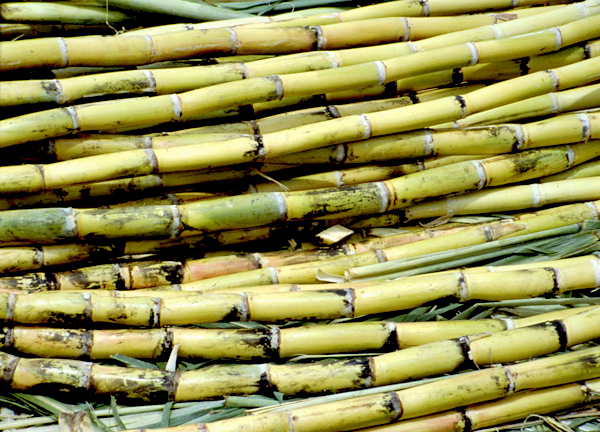Brazil just approved Amyris Inc's (AMRS -46.43%) farnesane fuel additive for use in jet fuel. That's a big boost for this bio-products company that could help it keep volume up and costs down. And it could be good news for Brazil, too. Although Brazil doesn't make headlines like China, Amyris is an interesting play on this up and coming economy and the global trend toward bio-products like sugar cane based jet fuels.
Big and getting bigger
Brazil is the fifth largest country in the world, with roughly 200 million people. While still tiny compared to China, that doesn't mean it isn't seeing its own impressive growth. One area in which this growth has been clearly visible is aviation. According to the Financial Times, between 2002 and 2013, "the number of airline passengers in Brazil trebled as rising incomes allowed the country's new middle classes to swap long distance bus journeys for air travel." And that's why Amyris is poised to benefit.

Source: Mariordo Mario Roberto Duran Ortiz, via Wikimedia Commons.
Late last year, Brazil approved Amyris' farnesane for use in jet fuel in blends of up to 10%. That may not sound like a big deal, but according to recent research, looking at the entire life cycle of farnesane and traditional petroleum-based jet fuel, farnesane reduces carbon dioxide emissions by as much as 90%. Amyris, which makes more than just this jet fuel alternative, uses yeast to digest sugar cane and create bio products.
This is pretty high-tech stuff, but the connection with Brazil is decidedly low tech. The country has a vast supply of low-cost sugar cane. According to the United Nations, the country produced nearly twice as much sugar cane as India, the next largest producer, in 2013. So, Brazil has a vested interest in supporting its sugar cane industry and, thus, Amyris. In fact, sugar cane accounts for about 15% of the country's energy consumption. The biggest impact has been replacing auto fuel.
Right time, right place
And now it looks like Brazil is looking to expand sugar cane into another expanding transportation sector. With its primary operations in Brazil and making use of Brazilian sugar cane, Amyris looks like it could be in the right place at the right time.
In Brazil, where our renewable jet fuel is produced, air travel has been growing rapidly during the last decade. Yet Brazil continues to import much of its jet fuel and taxes renewable fuels at rates that sometimes exceed taxes on fossil fuels. At Amyris, we believe our jet fuel represents a great opportunity for Brazil to support local economic development and reduce the country's dependence on imported fuel, all while contributing to reductions in carbon emissions. -- Amyris CEO John Melo in a news release
 Source: Cmales, via Wikimedia Commons.
Source: Cmales, via Wikimedia Commons.Exciting, but risky
With all of that said, Amyris is at the leading edge of a still-young industry. For example, Amyris has yet to turn an annual profit. The company is still spending heavily on developing its technology and, frankly, continues to look for a market for its products.
One clearly appears to be taking shape in the Brazilian aviation industry, which could open up global aviation markets over time, but Amyris also just announced plans to enter the industrial cleaning and pharmaceutical sectors. That's in addition to existing businesses in the consumer goods, lubricants, and performance materials sectors. It might wind up a key player in all of these areas, but clearly, this is a company that's still trying to find enough traction with its bio-products to turn a profit. In fact, it's recently been shifting toward areas outside of fuel because they offer higher margins.
The aviation fuel market, however, isn't like the others. For example, according to Amyris, its addressable market for aviation fuel is over $200 billion. That's larger than all of the other businesses it's in combined. So Brazil's approval of farnesane is a big win for the company, even though fuel is just a small piece of its business today and isn't a major focus for the company.
This is because Amyris could use the scale provided by selling low margin fuels to keep costs down across the company. For example Farnesane is the building block of the company's new industrial cleaning offering. If the company's aviation product takes off (yes, that pun had to be made) it could be a key step toward turning the entire company profitable even if Amyris doesn't make much money off the fuel.
If you are interested in the bio-energy space, Amyris and Brazil are two players to watch closely.




